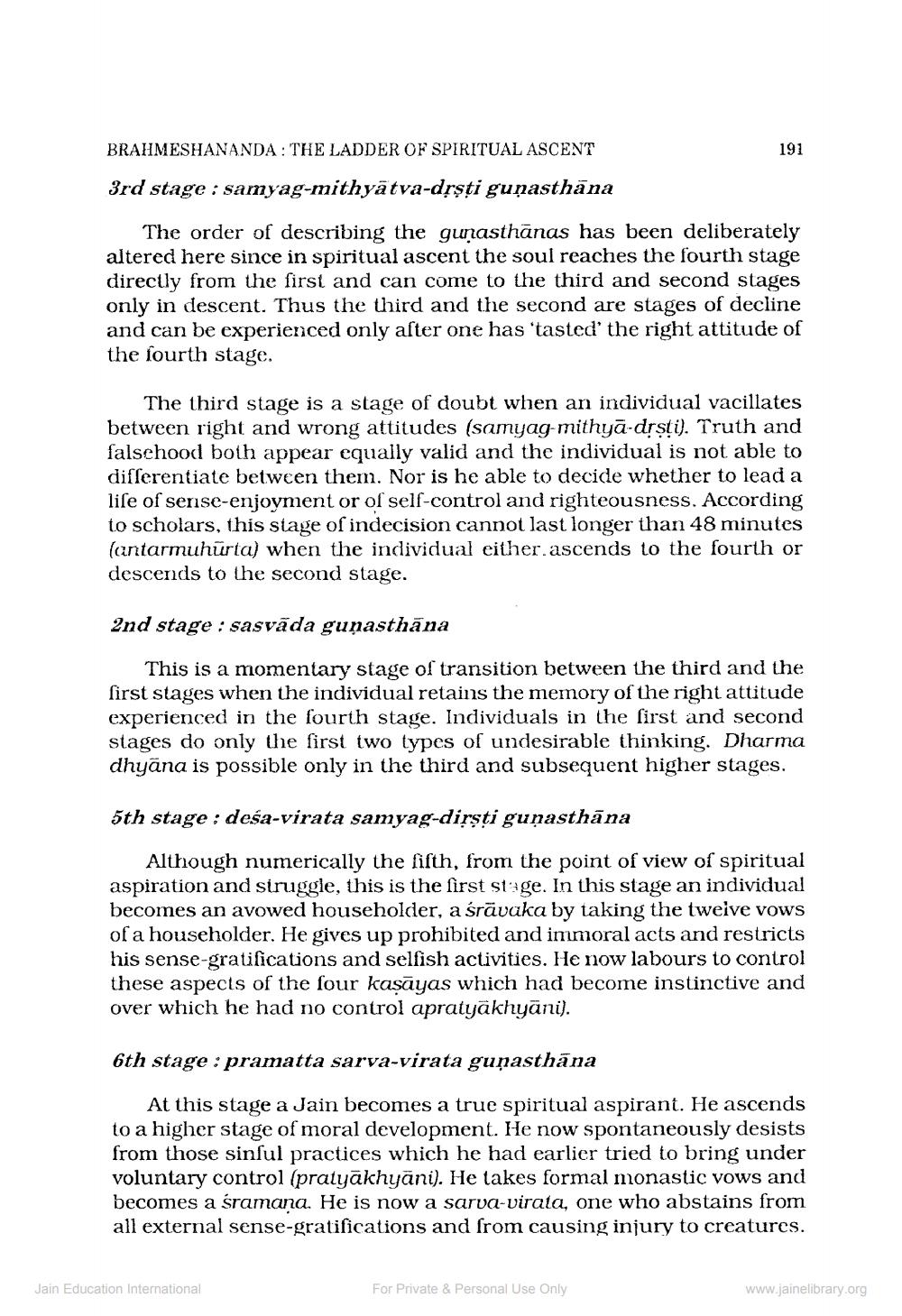________________
BRAHMESHANANDA: THE LADDER OF SPIRITUAL ASCENT
3rd stage: samyag-mithyatva-dṛṣṭi gunasthāna
The order of describing the gunasthānas has been deliberately altered here since in spiritual ascent the soul reaches the fourth stage directly from the first and can come to the third and second stages only in descent. Thus the third and the second are stages of decline and can be experienced only after one has 'tasted' the right attitude of the fourth stage.
191
The third stage is a stage of doubt when an individual vacillates between right and wrong attitudes (samyag-mithya-dṛṣṭi). Truth and falsehood both appear equally valid and the individual is not able to differentiate between them. Nor is he able to decide whether to lead a life of sense-enjoyment or of self-control and righteousness. According to scholars, this stage of indecision cannot last longer than 48 minutes (antarmuhurta) when the individual either.ascends to the fourth or descends to the second stage.
2nd stage: sasvāda guņasthāna
This is a momentary stage of transition between the third and the first stages when the individual retains the memory of the right attitude experienced in the fourth stage. Individuals in the first and second stages do only the first two types of undesirable thinking. Dharma dhyāna is possible only in the third and subsequent higher stages.
5th stage: desa-virata samyag-dirsti guṇasthāna
Although numerically the fifth, from the point of view of spiritual aspiration and struggle, this is the first stage. In this stage an individual becomes an avowed householder, a śrāvaka by taking the twelve vows of a householder. He gives up prohibited and immoral acts and restricts his sense-gratifications and selfish activities. He now labours to control these aspects of the four kaṣāyas which had become instinctive and over which he had no control apratyäkhyāni).
6th stage : pramatta sarva-virata guņasthāna
At this stage a Jain becomes a true spiritual aspirant. He ascends to a higher stage of moral development. He now spontaneously desists from those sinful practices which he had earlier tried to bring under voluntary control (pratyākhyāni). He takes formal monastic vows and becomes a śramana. He is now a sarva-virata, one who abstains from all external sense-gratifications and from causing injury to creatures.
Jain Education International
For Private & Personal Use Only
www.jainelibrary.org




